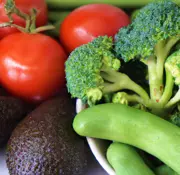Hello again, it’s Mike here, continuing our journey into the fascinating world of longevity supplements. If you’ve been following along, you’ll know that we’ve been delving into the research of renowned biologist David Sinclair. Today, we’re turning our attention to a molecule that’s been making quite a stir in Sinclair’s work and beyond – Nicotinamide Mononucleotide, or NMN for short.
Table of Contents
- NMN in Our Diet
- Forms of NMN Supplements
- Dosage and Consumption
- The NMN Ban Controversy
- NMN in the Public Eye: Celebrities and Scientists
- Voices from the Crowd: User Reviews on NMN
- NMN Questions and Answers
- Potential Therapeutic Applications
- Ongoing Studies and Clinical Trials
- NMN Market
- Future Research Directions
NMN is a derivative of niacin, a type of Vitamin B3, and it plays a pivotal role in the production of NAD+ (nicotinamide adenine dinucleotide), a coenzyme found in every living cell. NAD+ is like the unsung hero of our cellular processes, involved in everything from energy production to DNA repair and cell signaling.
Here’s where it gets intriguing: as we age, our NAD+ levels naturally decline, leading to a range of health issues, from lower energy levels to cognitive decline, and even increased susceptibility to disease. But what if there was a way to counteract this decline? This is where NMN comes into play in Sinclair’s research.
Moreover, recent research has shown that NMN can play a role in improving fertility during reproductive aging. This is just one of the many areas of health that NMN could potentially influence.
NMN in Our Diet

While NMN supplements have been gaining popularity, it’s important to note that this beneficial compound can also be found naturally in various foods. Incorporating these foods into your diet can provide a natural source of NMN and contribute to your overall health.
- Edamame: These young soybeans, often served as a snack in Japanese cuisine, are a great source of NMN. They’re also rich in protein and fiber, making them a nutritious addition to your diet.
- Broccoli: This green vegetable is not only packed with vitamins and minerals, but also contains a good amount of NMN. Whether you prefer it raw, steamed, or roasted, broccoli is a versatile ingredient that can easily be added to your meals.
- Cucumbers: Known for their refreshing taste, cucumbers are another food source of NMN. They’re also hydrating and low in calories, making them a great choice for a healthy snack or salad ingredient.
- Avocados: This creamy fruit is not only a source of healthy fats but also contains NMN. Avocados can be enjoyed in many ways, from being spread on toast to being the star ingredient in guacamole.
- Tomatoes: Whether enjoyed raw in a salad or cooked in a sauce, tomatoes provide a source of NMN. They’re also rich in antioxidants, including lycopene, which has been linked to many health benefits.
David Sinclair emphasizes that while NMN is present in certain foods, the levels are not sufficient to sustain the elevated NAD+ levels that might confer health benefits. This is why he advocates for NMN supplementation.
Forms of NMN Supplements
Nicotinamide Mononucleotide supplements come in pill and powder forms. NMN pills, often containing 250 to 500 milligrams of NMN, are best taken in the morning on an empty stomach, an hour before eating. Some pills include additional ingredients like Resveratrol to enhance absorption, and there are liposomal forms designed to protect NMN from stomach acid.
NMN powders are available for oral or sublingual (under the tongue) use. Oral powders can be mixed with water and taken in the morning before food. Sublingual powders are placed under the tongue until they dissolve naturally. They can be taken in the morning, regardless of food intake. Despite the different forms, there’s currently no scientific evidence to suggest one is more effective than the other.
Dosage and Consumption
It’s often suggested to consume NMN in the morning, considering some people experience a surge in energy levels that might disrupt sleep if taken later in the day. The absorption of NMN is not notably influenced by food, allowing for its consumption with or without meals, though pairing it with a glass of water is typically recommended. Some users prefer to spread their dosage throughout the day, while others take a two-day break each week.
David Sinclair has shared that he takes 1 gram (1000mg) of NMN daily in the morning. However, the optimal dosage can vary depending on individual factors such as age, health status, and lifestyle.
A Reddit user shared their experience with NMN supplementation over a period of three months. Initially, they started with a high dose of 500mg, which resulted in a significant energy boost but also led to sleep disturbances. They then reduced the dose to 375mg and eventually settled at 250mg, which they found to be more sustainable and allowed for better sleep.
The supplementation of NMN has been commonly paired with resveratrol due to their potential synergistic effects on promoting cellular health. Also, the effectiveness of NMN is potentially enhanced when combined with fisetin, vitamin C, and glucosamine.
The NMN Ban Controversy

In a recent development that has sent shockwaves through the longevity community, the FDA has placed restrictions on the sale of NMN supplements. This decision has sparked a heated debate, with many pointing fingers at MetroBiotech, a pharmaceutical company co-founded by renowned biologist David Sinclair.
MetroBiotech has been at the center of this controversy due to their development of a proprietary form of NMN, known as MIB-626. The company has initiated clinical trials on this modified version of NMN for use in preventing age-related diseases. This move has been seen by some as an attempt by the pharmaceutical industry to monopolize anti-aging treatments, leading to allegations of governmental corruption.
In response to these allegations, David Sinclair emphasized that the clinical trials conducted by MetroBiotech on NMN have shown promising results, with some findings already published and others under peer review. Sinclair stressed that the goal of bringing NMN to market as an FDA-approved medication is to benefit the tens of millions of people who suffer from aging-related diseases.
In other words, to ensure that the majority of people can benefit from this, let’s prohibit its free sale and sell it at a higher price with prescriptions. “For your safety” – a typical phrase that was spoken widely in the years 2020-2022 🙂 In my opinion, David didn’t say anything sensible. Therefore, the theory that he lobbied for the ban seems quite plausible to me. And then, most likely, this supplement really works.

Reports suggest that NMN is also no longer available for sale in Europe. The European Commission labels NMN as an unauthorised Novel Food, a category for foods or ingredients not consumed in the EU before May 15, 1997. The European Food Safety Authority (EFSA) must verify its safety, as it wasn’t marketed before 1997, before it can be sold. However, I’ve recently ordered and received this product in Europe from iHerb (as of June 2023), so I recommend anyone who has the opportunity to stock up quickly. Later, it may be much more difficult or, at best, you’ll have to wait for David’s expensive product.
NMN in the Public Eye: Celebrities and Scientists
NMN has not only caught the attention of the scientific community but also of public figures and celebrities who are passionate about health and longevity.
In addition to David Sinclair, another notable figure who has publicly discussed taking NMN is Joe Rogan, a popular podcast host and comedian. Rogan has expressed interest in NMN and its potential benefits on his podcast, “The Joe Rogan Experience”. He has had several conversations with experts in the field, including David Sinclair, about the role of NMN in promoting health and longevity. Rogan is known for his interest in health and wellness, and his discussions about NMN have helped to raise public awareness about this supplement.
In the scientific community, Dr. Andrew Huberman, a neuroscientist at Stanford University, has also voiced his insights on NMN. During a discussion with Joe Rogan, he emphasized the role of NMN in elevating NAD+ levels in the body. NAD+ is vital for cellular energy production and its levels are known to decline as we age. Dr. Huberman advocated for the availability of NMN as a supplement, underscoring its potential benefits in health and longevity.
While not directly linked to NMN, some celebrities have been associated with the Sirtfood Diet, which is based on the activation of sirtuins, a family of proteins that NMN is thought to influence. English socialite Pippa Middleton and UFC fighter Conor McGregor have reportedly followed this diet.
Voices from the Crowd: User Reviews on NMN

After compiling and analyzing user reviews from various online platforms, including Reddit and ProHealth, a number of common themes and trends have emerged.
Increased energy levels are a common benefit reported by users. For instance, one user of an NMN supplement noticed a significant boost in their daytime energy and improved sleep quality. Another user echoed similar sentiments about enhanced daily energy.
Mental health improvements are another frequently mentioned benefit. Users have reported increased focus, reduced brain fog, and mood enhancement. For example, one user noticed heightened alertness and motivation after two months of supplement use.
Many users have also observed positive impacts on their physical health, feeling stronger and healthier overall. Another supplement user reported better overall health since starting their NMN regimen.
Users have also expressed trust in the brands they use, citing their reputation and product quality. One user expressed their trust in their chosen brand after an independent lab verified the accuracy of their NMN content.
Many believe in the longevity benefits of NMN supplements, reporting a feeling of youthfulness and improved health. One user claimed to feel and act 20 years younger after starting their supplement regimen.
Finally, some users have reported improved sleep quality, attributing it to their NMN supplement use.
NMN Questions and Answers
Is it OK to take NMN everyday?
Based on the current research, it appears to be safe to take NMN supplements daily. Studies have shown that daily doses of up to 1,200 mg are well-tolerated with minimal side effects. However, it’s important to note that research on NMN is still ongoing, and the long-term effects of daily supplementation are not fully understood.
Can NMN be taken with other supplements?
Yes, NMN can typically be taken with other dietary supplements, as there are no widely known or reported interactions. Some supplements may even have synergistic effects with NMN. For instance, combining NMN with a supplement like resveratrol, another compound associated with promoting cellular health and longevity, might potentially amplify the beneficial effects of both. Similarly, NMN might be paired with other B vitamins or supplements supporting energy metabolism.
What is the risk of taking NMN?
While NMN supplements have been reported to have several benefits, there are potential side effects to consider. Some NAD boosting supplements, when taken at high levels, have been reported to cause side effects such as nausea, diarrhea, flushing, stomach discomfort, and indigestion.
It’s important to note that individual experiences may vary, and these side effects are not universally experienced. For instance, Harvard Professor David Sinclair reported only occasional stomach upset from taking as much as one gram of NMN every day.
In terms of clinical trials, a human study in Japan found no ill effects at doses up to 500mg, while another study into endurance found no issues at dosages of up to 1200mg. One of the most recent clinical trials administered NMN supplements in placebo, 300, 600, and 900mg doses, with no signs of toxicity at any amount. While there have been no reported side effects, there is still no consensus on the right amount of NMN.
However, the biggest safety concern surrounds the number of cheap and fake imitations available in the market. Many of these are not pure NMN and have been bulked out with other compounds, raising potential safety issues, especially if the manufacturer has not been clear about what exactly is in there. Therefore, it’s crucial to choose recognized brands that are transparent about their production methods and have been independently approved.
What is better NMN or NAD?
Based on the information provided in the video by David Sinclair, NMN appears to be more effective than NAD as a supplement. This is because NMN is a smaller molecule that can be more readily absorbed by cells. Once inside the cells, NMN is converted into NAD, a crucial molecule that carries out hundreds of chemical reactions in the body and is necessary for defending the body against aging.
Is NMN toxic to the liver?
NMN does not appear to be toxic to the liver. In one study, mice and beagle dogs were given NMN orally for a period of 7 and 14 days respectively. The results showed that NMN was well tolerated with minimal adverse effects. In mice given a higher dosage, there was a slight increase in alanine aminotransferase, an enzyme that can indicate liver damage when found in high levels in the blood, but other biomarkers remained unchanged. In beagle dogs, there were only mild increases in creatinine and uric acid, which are markers related to kidney function, not liver function.
The other article titled “Nicotinamide Mononucleotide: A Promising Molecule for Therapy of Diverse Diseases by Targeting NAD+ Metabolism” does not indicate that NMN is toxic to the liver either.
In fact, the article discusses the potential therapeutic benefits of NMN in treating various diseases, including metabolic disorders, cardiovascular diseases, and neurodegenerative diseases. It also mentions that NMN could be beneficial in liver diseases. NMN is a precursor of NAD+, and it has been shown to improve NAD+ metabolism, which is beneficial for liver function.
Does NMN make you feel younger?
Yes, it’s possible that NMN could make you feel younger. Firstly, NMN has been linked to the suppression of weight gain that typically comes with age. By incorporating NMN supplements into your routine, you may potentially see benefits such as weight loss and muscle growth. These physical changes not only enhance muscle health but also contribute to a younger look and feel.
Secondly, early research suggests that NMN may have anti-aging properties that manifest in visible improvements in the skin. These improvements may include a reduction in wrinkles, a decrease in dark spots, and an increase in skin elasticity, all of which contribute to a more youthful appearance.
Lastly, NMN has been reported to enhance cognitive function. Many individuals who take NMN have reported feeling mentally sharper and more focused. This is supported by studies that show NMN’s positive effects on brain function, including improved cognition and increased blood flow in the brain.
Does NMN help eye health?
There is evidence to suggest that NMN may have beneficial effects on eye health. It has been shown to eliminate senescent cells and reduce DNA damage by 50% in a human cell model for macular degeneration, an age-related eye disease. Treatment with NMN has been shown to restore retina structure while reducing senescence in a mouse model for macular degeneration.
A study indicated that NMN’s protective effects stem from reducing cell death, suppressing eye inflammation, and increasing levels of antioxidants that combat oxidative stress in mouse eyes. Further results showed increased activity of an enzyme—SIRT1—mediated these protective effects.
The loss of NAD+ levels can cause rapid neurodegeneration in the eye and vision loss. Replenishing NMN can prevent these negative consequences and restore vision. According to research, long-term NMN administration significantly enhances eye function and tear production.
Does NMN help with Alzheimer's and dementia?
Research has shown promising results in animal models for potentially reversing the effects of Alzheimer’s disease and other dementias. Studies have indicated that mice with Alzheimer’s treated with NMN had reduced beta-amyloid protein production, which is associated with Alzheimer’s, improved cognitive function, and a reduction of overall inflammation.
However, it’s important to note that these studies have been primarily conducted on animal models. Therefore, while the initial research is promising, it’s not yet clear whether NMN can help with Alzheimer’s and dementia in humans.
How do I know if my NMN is working?
Determining whether your NMN supplement is working involves observing several physical and physiological changes. Initially, you may notice an upswing in your energy levels and metabolism after consistent intake as prescribed. An increase in overall energy throughout the day and enhanced ability to maintain physical activity could be seen as the first indicators of NMN starting to take effect. This is because, as research indicates, NMN starts working in a matter of minutes after intake, clearing the bloodstream and penetrating body tissues within 15 minutes.
However, understanding the long-term effects of NMN requires patience and attention to more subtle changes over time. It takes approximately three weeks for your body to acclimate to the supplement and begin absorbing NMN molecules effectively. After your body has fully adjusted, typically around the 3–4 month period, you should start to notice more profound effects. These may include a sustained surge of youthful energy, deeper and more restful sleep, improved focus, manageable joint discomfort, and easier muscle recovery post-workout. These signs indicate that your NMN supplement is indeed working.
Is there any NMN alternative?
Yes, there is an alternative to NMN, which is NR (Nicotinamide Riboside). While NMN is considered an unauthorised Novel Food by the European Commission, NR is authorized in Europe. Both NMN and NR are forms of vitamin B3 and are precursors to NAD+.
NR, like NMN, contributes to increasing NAD+ levels in the body. They are chemically identical, except for one phosphate group on NMN. Research has shown that NR can enter the cell immediately, while NMN cannot. This makes the consumption of NR more efficient.
Why Brad Stanfield Stopped Taking NMN?
Dr. Brad Stanfield, a Primary Care Physician practicing in Auckland, New Zealand, decided to stop taking NMN due to concerns about the current understanding of the science behind NAD+ precursors like NMN. He felt that there are some studies that might point to factors that contradict taking NAD+ precursors.
One of the key points in his decision was the role of CD38, a protein found on the surfaces of immune cells and inflammatory cells, and its interaction with senescent cells. CD38 consumes NAD+ at a high rate, potentially limiting the helpful impact of NAD+ on senescence-associated inflammation.
Dr. Stanfield also considered the balance between NAD+ levels and inflammation. As we age and produce more senescent cells, the resulting inflammation could cause a decline in NAD+ levels due to the action of CD38 released by senescent cells. This could potentially create a self-correcting system trying to maintain homeostasis, but it could also exacerbate inflammation and other age-related conditions.
Given these considerations and the current state of research, Dr. Stanfield decided to stop taking NMN until more is understood about its effects and potential benefits.
Why does David Sinclair prefer NMN over NR?
David prefers NMN over NR (Nicotinamide Riboside) for several reasons based on his research and understanding of the two compounds:
- NMN is more direct in the NAD+ biosynthesis pathway: Both NMN and NR are precursors to NAD+, a crucial coenzyme found in every cell of our bodies and involved in hundreds of metabolic processes. However, NR must be converted into NMN before it can be utilized to create NAD+. NMN, therefore, might be a more direct and efficient way to replenish cellular NAD+ levels.
- Evidence of superior health benefits: Some studies suggest that NMN may have more extensive effects on health and aging compared to NR. These benefits include partially reversing vascular aging, improving endurance in old mice, improving aging metabolism, and even restoring fertility in old animals. However, more research is needed to definitively determine the comparative benefits of NMN and NR in humans.
- Personal experience and belief: David Sinclair takes NMN himself, believing in its efficacy. He is also a co-founder of Metro Biotech, a company developing NMN-based molecules to treat aging and aging-related diseases. This shows a significant investment in NMN, both personally and professionally.
Potential Therapeutic Applications
NMN has shown promise in the treatment of various diseases. It has demonstrated the ability to stimulate cell survival in response to genotoxic stress, which is a form of cellular damage caused by harmful chemicals. This suggests that NMN could potentially be used to improve cell survival in conditions characterized by such stress.
In the context of diabetes, NMN could be used to compensate for ATP shortage in beta cells of pancreatic islets exposed to beta cell toxin or oxidative stress, thus enabling the beta cells to survive. This could open up new avenues for the treatment of type 1 diabetes.
Ongoing Studies and Clinical Trials
The potential of NMN is currently being explored in a phase I clinical trial initiated by researchers of Keio University School of Medicine in Tokyo and Washington University School of Medicine of St. Louis. The goal of this study is to assess the safety and bioavailability of NMN in humans. A positive outcome from this study could pave the way for a new treatment strategy for aging and age-related diseases.
NMN Market
The NMN market is projected to witness significant growth, reaching USD 34.51 billion by 2029, according to a study by Exactitude Consultancy Market Research. The market, which was valued at USD 210.64 million in 2022, is expected to grow at a compound annual growth rate (CAGR) of 8.2% from 2023 to 2029. The report suggests that the growth is driven by the increasing demand for NMN in healthcare products and cosmetics. However, the NMN market faces regulatory challenges in regions like the US and the EU. Key players in the market include GeneHarbor, Herbalmax, Genex Formulas, and Shinkowa Pharmaceutical, among others.
Future Research Directions
The association of NAD+ with enzymes controlling apoptosis, DNA repair, stress resistance, metabolism, and endocrine signaling could also be an area of interest for future research. As NAD+ metabolism can be a potential target for abnormalities related to these biological processes, NMN could be of therapeutic benefit.
Disclaimer
The information provided in this article is for general informational purposes only. The content presented on this website should be considered solely as opinions and personal experiences. Read more
